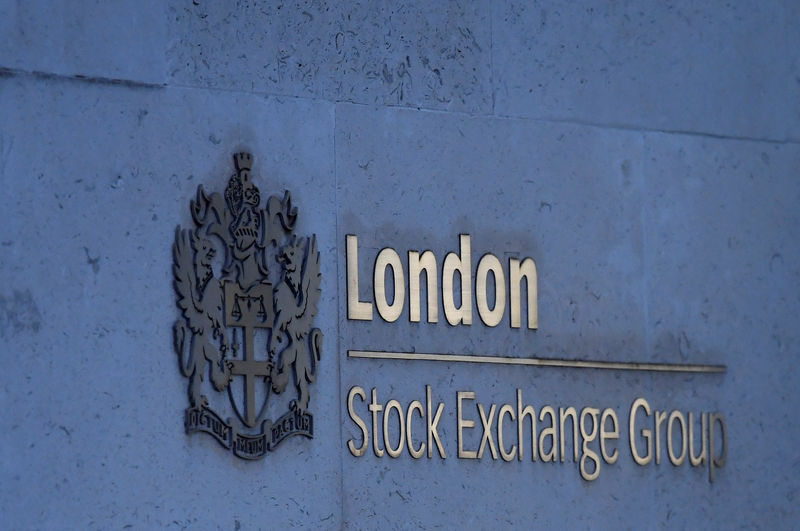By Karin Strohecker and Ritvik Carvalho
LONDON (Reuters) - Global stock markets and commodities took a hit on Monday after a shock contraction in Chinese trade pointed to deepening cracks in the world's second-largest economy and sparked fears of a sharper slowdown in global growth.
Data from China showed imports fell 7.6 percent year-on-year in December while analysts had predicted a 5 percent rise. Exports dropped 4.4 percent, confounding expectations for a 3 percent gain.
For an interactive version of the following chart, click here https://tmsnrt.rs/2SRopIf.
The data reinforced fears U.S. tariffs on Chinese goods were starting to hit China's cooling economy, while softening demand has been felt around the world with sales of goods ranging from iPhones to automobiles slowing, prompting profit warnings from Apple (NASDAQ:AAPL) among others.
Adding to the gloom were weak industrial output numbers from the euro zone, which posted their largest fall in nearly three years.
The index of Europe's leading 300 shares (FTEU3) fell 0.9 percent by noon in London. Germany's DAX (GDAXI) and France's CAC (FCHI) were down over half a percent and 0.9 percent respectively, with shares in European luxury goods companies and the automotive sector suffering some of the biggest declines.
The falls in Europe followed hefty declines in Asia where MSCI's broadest index of Asia-Pacific ex-Japan shares lost around 1 percent from Friday's 1-1/2 month high - its biggest single-day percentage drop since Jan. 2. Chinese (CSI300) and Hong Kong shares (HIS) suffered the worst hits.
"December's (China) trade data were soft, but the data for the preceding months were surprisingly strong and show exports to the US growing at a decent pace, which may reflect producers trying to front-run any future escalation in tariffs," wrote Neil Shearing, group chief economist at Capital Economics in a note to clients.
U.S. futures showed no let-up on the horizon, with Nasdaq e-mini futures (NQc1) pointing to falls over 1 percent for tech stocks while industrials
COMMODITIES SUFFER
The prospect of slowing global growth also roiled commodity markets, with oil prices slipping over 1 percent. Industrial metals copper
Safe-haven trades benefited from the equity pullback with U.S. 10-year Treasury yields falling to as low as 2.6690 percent - their lowest level in a week - while gold prices gained.
The world's two largest economies have been in talks for months to try and resolve their bitter trade war, with no signs of substantial progress.
Some analysts expect China's latest data to provide impetus to Beijing to resolve the trade dispute with Washington.
Though Citi analysts said even with the rising probability for both sides to reach an agreement, the tariff and trade disruption appears to have already rippled through the global economy.
"Regional trade growth appears to have slowed substantially after front-loading effect diminished," they said.
In light of the trade dispute, China's policymakers have already pledged to step up support this year, following a raft of measures in 2018 including fast tracking infrastructure projects and cuts in banks' reserve requirements and taxes.
In currency markets, the yuan gave up some recent gains in both onshore
However, this could change, said Tim Graf, head of macro strategy EMEA at State Street (NYSE:STT).
"The weakness in the Chinese data is calling into question the recent strength of the renminbi," said Graf. "The downside for dollar/Chinese yuan is limited and that has implications for the euro and the Aussie dollar."
The dollar index as measured against a basket of currencies nudged 0.1 percent lower to 95.558. The Australian dollar
The euro was flat at $1.14710 (EUR=).
Britain's pound
For the U.S. trading day, banks will be in sharp focus as they kick off the earnings season. Quarterly results from Citigroup (N:C) are due on Monday followed by JPMorgan Chase (N:JPM), Wells Fargo (N:WFC), Goldman Sachs (N:GS) and Morgan Stanley (N:MS) later this week.
Expectations are downbeat with profits for U.S. companies forecast to rise 6.4 percent, down from an Oct. 1 estimate of 10.2 percent and a big drop from 2018's tax cut-fuelled gain of more than 20 percent.

Investor attention was also on the U.S. government shutdown, in its 24th day with no resolution in sight.